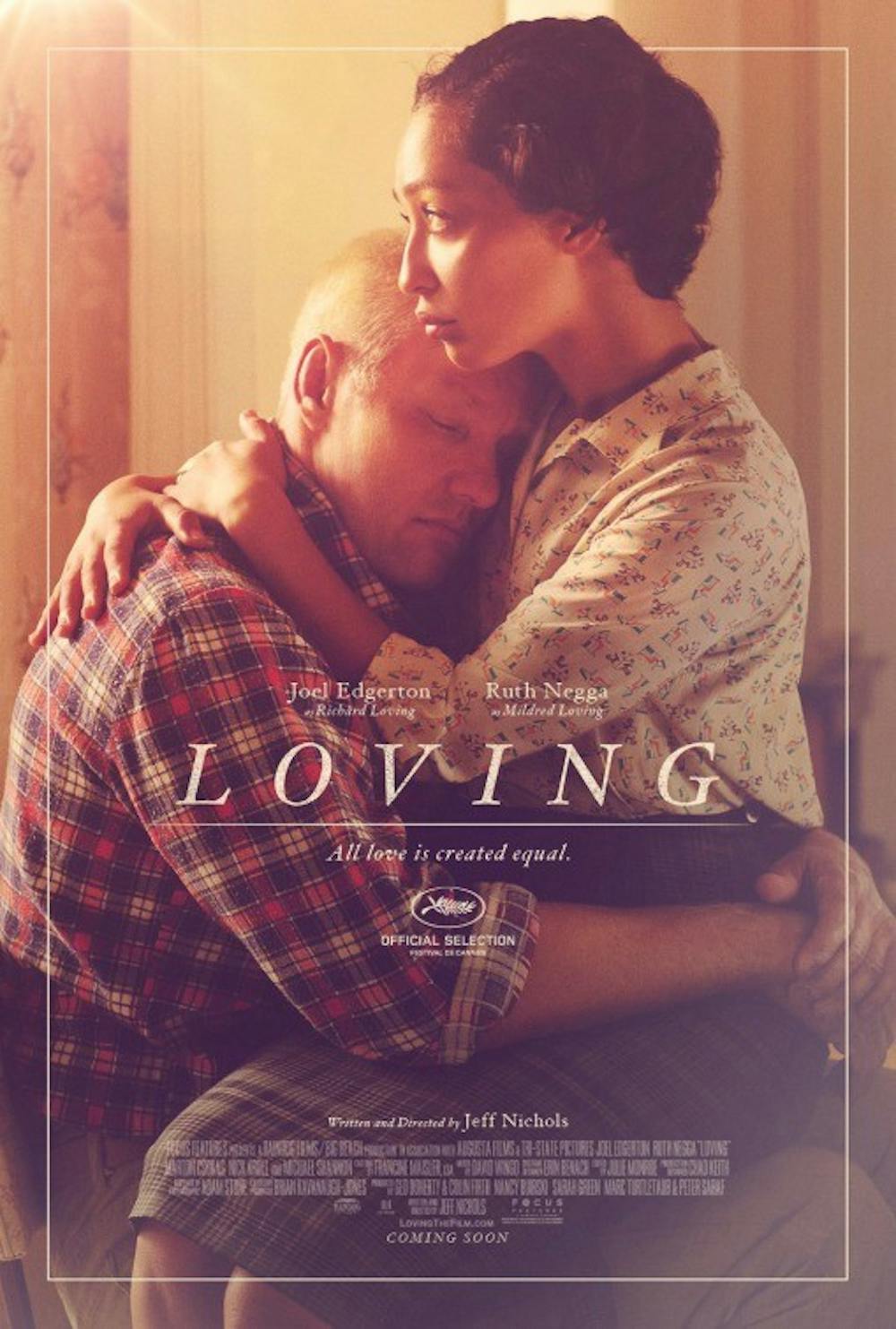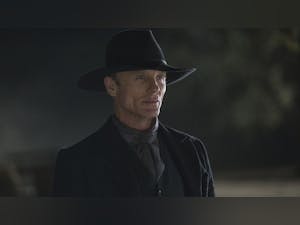From: The Scene Blog
Review: "Loving" tells a little-known story of overcoming racism in America

“We may lose the small battles, but win the big war.”
Mildred Loving’s words, as relayed in the marvelous new film Loving, come at a time of immense turmoil: a week that featured the election of a man who has more than flirted with white nationalism and the eruption of protests across the country, including at AU. The national mood is a mix of tumultuous, fearful, angry, pessimistic. Loving is none of those things, and perhaps that’s why it strikes a chord.
The movie follows the story of Richard and Mildred Loving, a couple who have recently wed in segregationist Virginia in the late 1950s. From the very beginning, you can tell that Rich and Mildred are not your typical newlyweds. Outside of their different skin colors -- Rich is white, Mildred is black and part Cherokee -- it’s clear that Rich (played by Joel Edgerton of The Great Gatsby and Zero Dark Thirty) is comfortable laughing, eating and living with Mildred’s black family and friends. Unlike most white people in their rural town, Rich does not look down upon black folks, instead embracing Mildred’s fulfilling family life and keeping a safe distance from his silently disapproving mother.
Rich is also an immensely proud man. He knows that white Virginians might frown upon his marriage to Mildred, and yet he still nails up their marriage certificate in on the wall of their tiny bedroom. While Rich seems impossibly oblivious to the potential legal implications of their marriage, the pride he takes in his union with Mildred, who he calls “String Bean,” fills the film with a love that is felt rather than said aloud. Even under so much strain and judgment from both the white and black communities around him, Rich’s passion for Mildred and their life together never fails him, though words often do.
And then there’s Mildred. Played by the relatively unknown Ruth Negga (World War Z), Mildred is the quiet hero of her family’s story. Once the Lovings are arrested for violating anti-miscegenation laws and banned from living in Virginia together, Mildred is forced to leave her tightly woven social circle in the country for an unknown future in Washington, D.C.
From the get-go, Mildred knows she wants out of the city and gets the idea to contact Robert Kennedy, the attorney general at the time, for legal help. He refers her to the American Civil Liberties Union, which takes on her case -- for free. Their case ends up making it to the Supreme Court, becoming one of the landmark civil rights victories in American history. Negga, who bears striking resemblance to the real-life Mildred, gives her character an easy grace and ferocity that contrasts with Rich’s reluctance to put his family out there for others to judge. It's clear that Mildred will do whatever it takes to attain the life her family deserves.
Loving’s strengths are also sources of potential weaknesses. It’s a slow-moving film, more concerned with body language and character development than with dramatic court scenes. For some, that might elicit yawns, but for others, the film shines in its attention to detail and genuine care for its characters. At times Loving’s strain for comic relief becomes frustrating, though Nick Kroll (Kroll Show, The League) does provide some real laughs as one of the ACLU lawyers. I spent most of his scenes wondering how Kroll got cast in such a dramatic role, only to find his comedic timing coming through.
However, it’s truly difficult to find faults in Loving. Perhaps I am a bit biased -- my grandparents, who played a major role in raising me, were married in the late 1960s amidst the Loving verdict. He was a young Mexican-American football player from Texas, she the daughter of white farmers in Nebraska. Though they like to pretend everything was peachy, their story mirrors the Lovings in important ways: an unexpected pregnancy, a marriage in another state, a not-so-lavish living situation that came together without fanfare. I could not watch this movie without the constant reminder that my grandparents’ path was made easier by the bravery and strength of the Lovings.
Loving depicts the pursuit of an American dream circumvented by uniquely American laws. The product is the most American of stories: a couple overcoming the odds, quietly and with purpose. Sure, it’s idealistic and looks at history with rose-colored glasses. But don't tell me our country couldn’t use some of that right about now.
Grade: A




